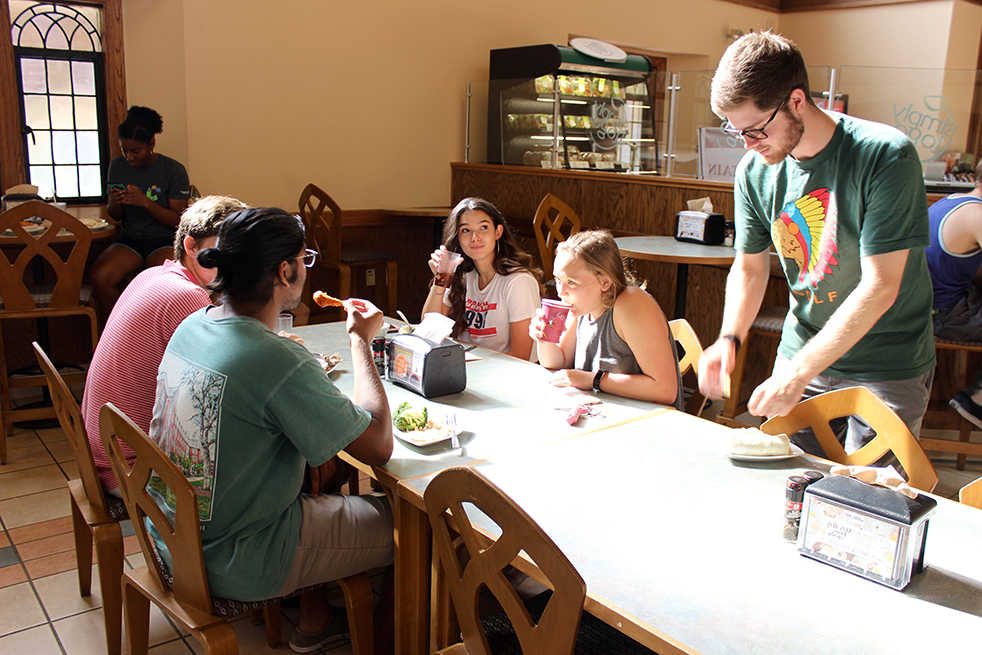It’s a common fear among incoming college students: the Freshman 15. Upon graduating high school, students are warned about the possibility of gaining weight during their first year of college, and the Freshman 15 is often joked about between family and friends.
However, there is nothing funny about its counterpart, the Reverse Freshman 15, which is becoming a more common occurrence for many students as they transition into the college environment.
Dr. Laura McLain, a Team Leader from the Renfrew Center in Atlanta, is very familiar with this phenomenon.
“This Reverse Freshman 15 is the trend for some individuals who are very fearful of gaining weight, and so they go to these excessive extremes to make sure they don’t gain that little bit of weight the first year, or to drop weight,” McLain said. This fear can be triggered by a myriad of factors, from the pressures of newfound independence to brain chemistry and genetic disposition.
“It can be old fear coming up for those who are in recovery from an eating disorder, it could be a new set of fears that arises with being out on their own,” McLain said. “College is a huge transition time, and it’s not even just freshman year problems, it can be any point in college. Transitions happen all the time.”
Some of the common signs of the Reverse Freshman 15 or any eating disorder include compulsive habits regarding diet and/ or exercise.
“Taking extreme dieting measures; talking excessively about food, cooking or dieting; and even when injured they’ll continue to exercise. It becomes very compulsive or habitual,”
McLain said.
Additional signs to look out for include — cutting out certain food groups from the diet, spending excessive amounts of time at the gym or missing out on social engagements.
People suffering from eating disorders may also have a distorted body image or equate body image with self-worth.
Along with more well-known eating disorders such as anorexia, bulimia and binge eating disorders, health professionals are witnessing the trends of disorders such as “orthorexia” and
“drunkorexia.”
While these are not clinical terms, they can be used to describe some of the eating disorders currently on the rise in college communities.
Orthorexia involves obsession with maintaining a supposedly healthy lifestyle and may be associated with dieting trends seen in the media.
“The things that you see are really focusing on very, very clean eating, a hyperawareness of being fit and active, but there is no flexibility with it,” McLain explained. That lack of flexibility can be very damaging to one’s personal health.
Another challenge of the college transition involves learning to navigate the world of partying, which introduces complications with alcohol consumption.
“The drunkorexia that has now surfaced as well is the tendency for individuals to calorically restrict what they eat; restricting food, but then binge-drinking. So, they are essentially making up for their calories in alcohol,” said McLain.
Students constantly deal with social and academic stressors that make it difficult to simultaneously maintain their schoolwork, friendships, and personal health.
“It comes down to balance and really doing research before you go away to school. Make sure you know the resources that are available on campus, get to know a kind of schedule – most people function best on a schedule.
“Getting connected and getting involved with your peers is really important, especially in college when you’re away from home,” McLain said.
What should you do if you have a feeling that someone you know is developing an eating disorder?
“It’s important, especially as a friend, if you’re concerned, to not try and solve the problem for them, but to really help support them in seeking out professional help,” said McLain.
In addition, it is important to take your friends seriously and avoid placing blame on them, as doing so can hinder a person’s desire to seek treatment.
Professional help takes on different forms, such as one-on-one or group therapy, and resources are available through the Georgia Tech Counseling Center, the Renfrew Center in Atlanta and the Multi-Service Eating Disorders Association (MEDA) at www.medainc.org.
While professional help is of utmost importance, friends can also make meaningful contributions to a support system.
McLain gave examples of supporting someone, including,
“being available to your friends; talking about things other than food, weight, counting calories and exercising; attempting to focus on the feelings or emotions they’re having as opposed to weight, calories, and food.”
